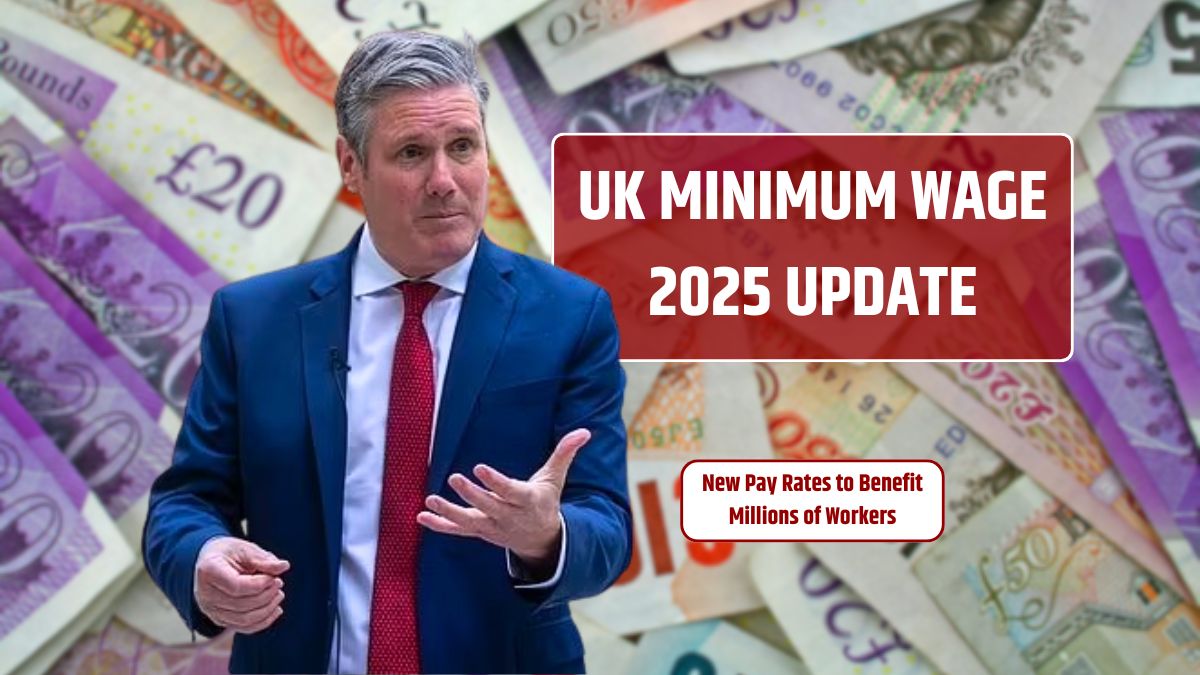From August 2025, the UK government will roll out new National Minimum Wage (NMW) and National Living Wage (NLW) rates, benefiting more than 3 million employees. With inflation and the cost of living at record highs, this move aims to bring meaningful financial relief to lower and middle-income households while narrowing the pay gap across age groups.
It’s not just about more pounds in the pocket—it’s about stability, dignity, and keeping pace with the real cost of living. Let’s break down what’s changing and how it will impact workers and employers alike.
Living
The National Living Wage applies to all UK employees aged 21 and above. Currently set at £11.44 per hour, it will rise to £12.21 per hour from August 2025. That means full-time workers clocking 37.5 hours weekly will see annual earnings jump from £22,918 to £24,441—an increase of £1,523.
Retail, hospitality, and healthcare workers are among those who will benefit the most, especially in areas where wages have historically lagged behind inflation. The government’s long-term aim is to ensure every worker earns at least two-thirds of the national median wage.
Youth
The 2025 update also boosts pay for younger workers and apprentices:
| Age/Role | Current Rate | New Rate | Increase % |
|---|---|---|---|
| 18–20 years | £8.60 | £10.00 | 16.3% |
| 16–17 years | £6.40 | £7.55 | 18% |
| Apprentices | £6.40 | £7.55 | 18% |
This not only increases earning potential for young people but also makes early employment and training more attractive. For many, it’s the first real step toward financial independence.
Benefits
So, what’s in it for employees?
- Higher take-home pay: A 21-year-old working full-time will earn over £1,500 more each year, helping cover essentials like rent, utilities, and food.
- Greater financial stability: Rising wages can cushion the impact of inflation, allowing workers to plan their futures with more confidence.
- Stronger economy: More disposable income means higher consumer spending, which fuels business growth and job creation.
Employers
Businesses, especially in labour-heavy industries, will need to prepare. Key adjustments include:
- Budgeting for higher payroll costs and potentially revisiting pricing or operations.
- Updating payroll systems and employment contracts before August 2025.
- Training HR and finance teams to ensure compliance and avoid administrative errors.
Penalties
Failing to follow the new rules can be costly:
- Fines up to £20,000 per underpaid employee.
- Damage to reputation and loss of trust among staff and customers.
Employers should act early—update payroll, inform employees, and review contracts well before the deadline.
Eligibility
To qualify for NMW or NLW in the UK, a worker must:
- Be at least 16 years old.
- Be legally employed in the UK.
- Work in a paid role (full-time, part-time, casual, or apprentice).
- Not be self-employed or on an unpaid internship.
The August 2025 wage changes mark a major step towards fairness in the workplace. For employees, it’s a chance to improve quality of life; for employers, it’s a chance to show commitment to valuing staff. Ultimately, it’s an investment in people—and that’s the strongest foundation for a stable economy.
FAQs
When will the new UK wage rates start?
From August 2025.
What is the new National Living Wage?
£12.21 per hour.
Who gets the National Living Wage?
Employees aged 21 or over.
How much will 18–20-year-olds earn?
£10.00 per hour.
What’s the fine for underpayment?
Up to £20,000 per worker.























